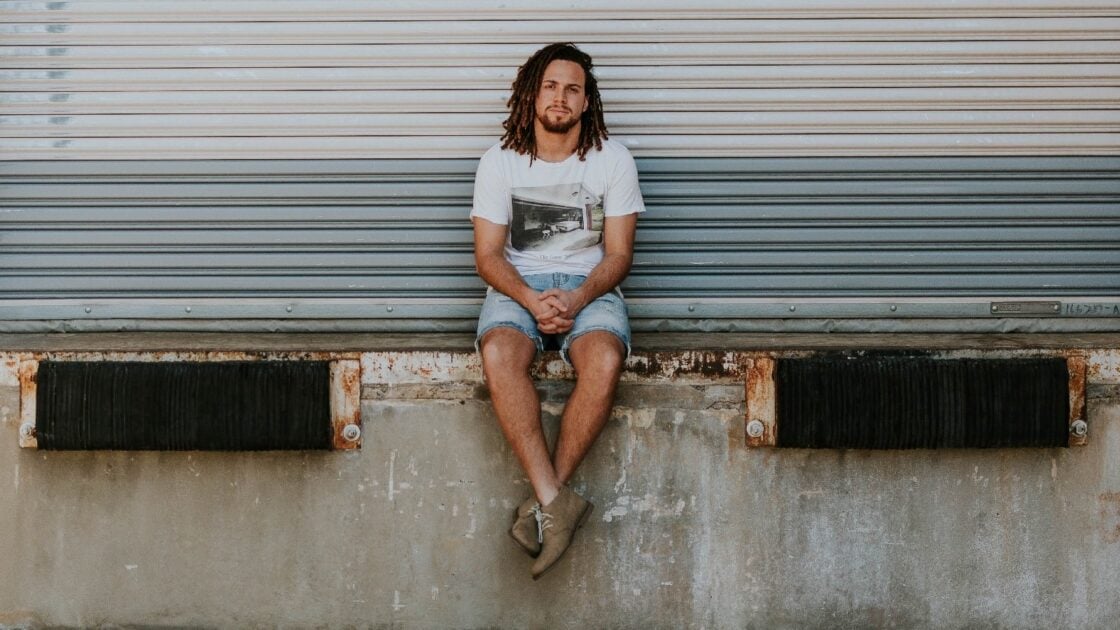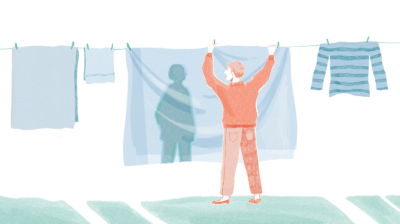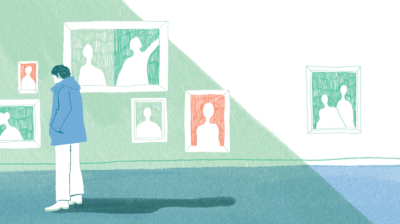Dealing with the truth of my uncle’s death
Craig details how he navigates the grief of losing his uncle to suicide.

CW // This piece discusses suicide. Please look after yourself if you choose to read on. Our text support service details are listed below.
I still remember the moment I was told. It was winter, I was in Dún Laoghaire with my mam, we had just left a chipper, and we started talking about one of my favourite topics, my uncle. Uncle Philip had always been a topic of discussion in my house, how we were so alike, stories of his youth, how he had this dreadful moustache, how he could sing, draw, and play the guitar. I had always been a fan of Marvel and DC, but Philip was always my hero.
He was the masculine role model I always wish I had, and I could tell how much he was missed by my Granny and my mam. I was told he had died in Australia, where he lived at the time, and I believe I was told it was a car accident. I was always inquisitive, perhaps annoyingly so, and I could tell that there was more to the story. I can’t recall why I believed that to be true, but whatever reasons I had, it was enough for me to continuously pester for answers, and bombard my mam with questions, a particular trait that has yet to go away. This persistent line of questioning about my uncle led to me finding out the answer to how my uncle died.
Hearing that my uncle died by suicide
Suicide. A topic which I always had found myself acutely aware of. I wasn’t hidden from it, nor was I protected from it, yet, I don’t think I understood it. I don’t know if I’ll ever understand it. Philip died by suicide years before I was even born. Hearing this information left me feeling conflicted. I didn’t know how to feel. I didn’t expect the variety of emotions which were thrust upon me. The conflicted nature of the emotions I was experiencing made the hearing of the news even harder to process.
I allowed sadness to be the most visible expression on my face, yet it was the hidden shame which was hurting the most. It was the internal shame I felt for being angry at Philip. I still feel this shame for holding that hidden anger initially. I was angry that he left me. I understand that I never met him, nor he met me, yet it still felt like an abandonment of some sort.
Dealing with the emotions of grief
My limited understanding of suicide prevented me from realising that this wasn’t about me, yet my childhood ignorance was still a domineering factor in my emotions at the time. In my mind, he was my hero, he was my favourite uncle, and yet, he chose to leave me, he chose to have me grow up without him, and he chose to never meet me.
I had always felt the lack of not having him around, it’s all I ever knew when it came to him, and now that lack which I had usually associated with a melancholic sensation of sadness, became all the more painful, as it became harder to disassociate Philip from suicide.
This selfish feeling of anger was rooted in another feeling, my annoyance of what could have been. Because I was lacking in a present father figure, I had so desperately hoped that someone could have filled that role, and in my mind, Philip could have filled that role, if only he was still alive.
How I dealt with anger after suicide
As a child, I was only just getting over one abandonment, hearing that Philip had died by suicide. Hearing that he “chose” to not fill that role in my life, felt like another abandonment. It felt like I was mourning two losses, the loss of Philip himself, and the loss of what he might have been to me.
As time passed and as I learned more about his life and death, I began to look at the event less selfishly and look at it through Philip’s eyes. When discussing suicide, many people believe that victims of suicide lack love or affection towards their family and loved ones. I would have to disagree. I say they possess more love and affection than any of us would know.
They love them so much that they believe they deserve better, and unfortunately, many, like Philip believed that “better” consisted of a world with him not in it. That realisation, that greater level of understanding, didn’t make it hurt any less, but it helped end the intense variety of feelings I was feeling, it got rid of the anger.
What feeling sad about suicide made me realise
When the anger went away,, however, it began to hurt more. I find it considerably easier to be angry than to be sad, and I often find excuses to channel sadness into anger as a coping mechanism to deflect those distressing emotions.
It had always been easier to bottle up than to let myself feel, and the truth is, nothing to do with suicide is easy. There is no easy way to fix all the problems or make everything better. This specific grieving process is so varied and complex.
The ways it has impacted my life and the lives of those closest to me are countless, and unfortunately, these feelings don’t just go away. They ebb and flow, and aren’t uniform. Different experiences can bring up different emotions, and this is all to be expected. I’ve personally found that although the hardship of the emotions doesn’t necessarily get easier, it’s become more manageable.
I hope that this grief never leaves me, I hope it always plays a part in my life, no matter how difficult that may seem or how sad it may become. This grief is all the unexpressed love I never got to share.
HUGG offer hope and healing by providing information, telephone support and local peer support groups led by volunteers with lived experience. If you would like to attend a HUGG Group just complete the form here ‘join a group’ or call them on 01 513 4048 (monitored answering machine) or email [email protected] for more information.
Feeling overwhelmed and want to talk to someone?
- Get anonymous support 24/7 with our text message support service
- Connect with a trained volunteer who will listen to you, and help you to move forward feeling better
- Whatsapp us now or free-text SPUNOUT to 50808 to begin.
- Find out more about our text message support service
If you are a customer of the 48 or An Post network or cannot get through using the ‘50808’ short code please text HELLO to 086 1800 280 (standard message rates may apply). Some smaller networks do not support short codes like ‘50808’.






